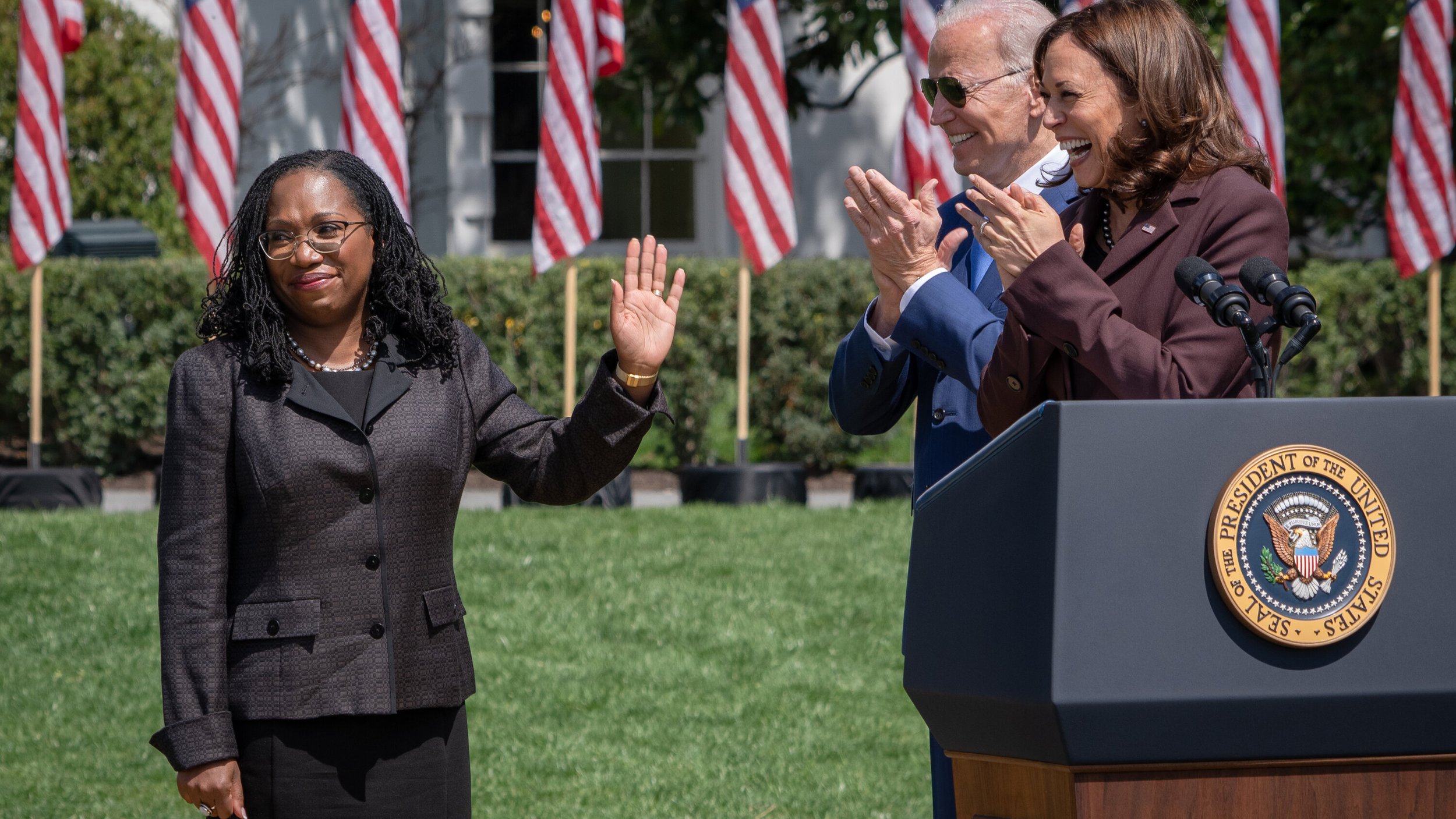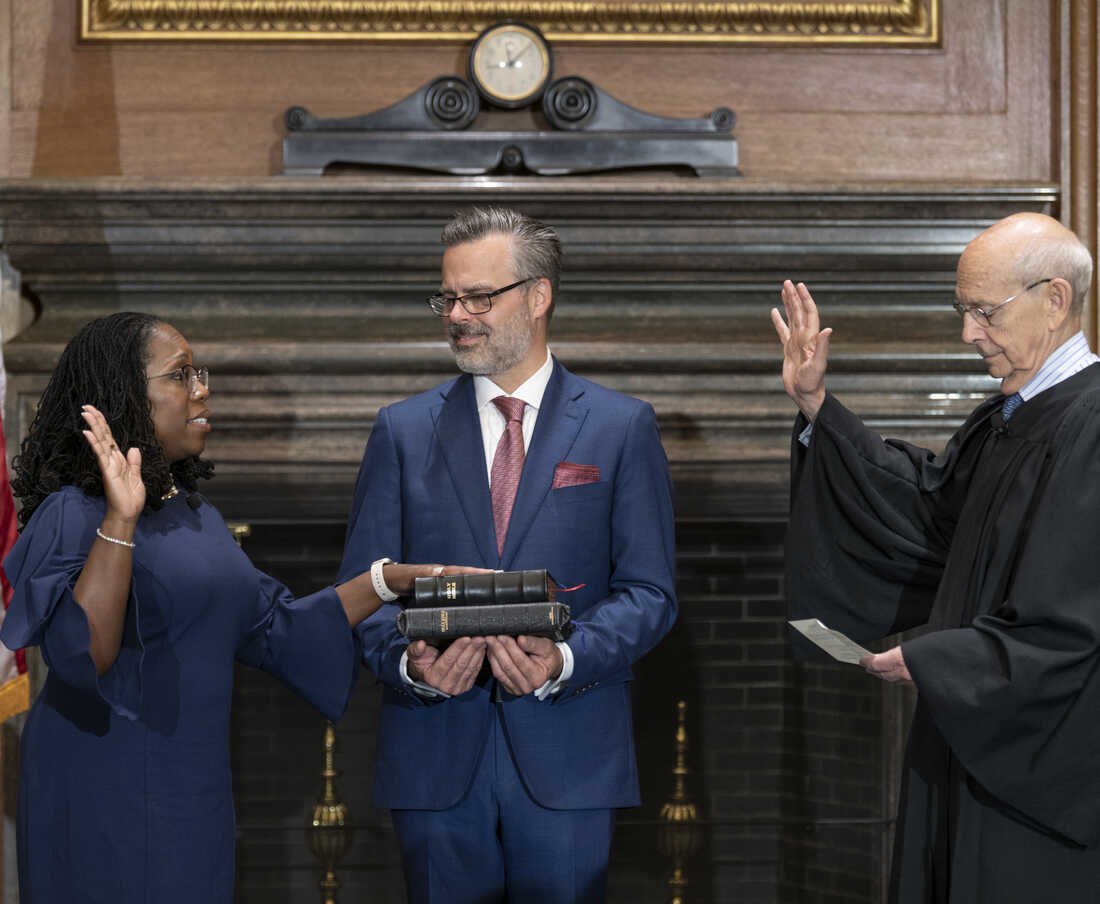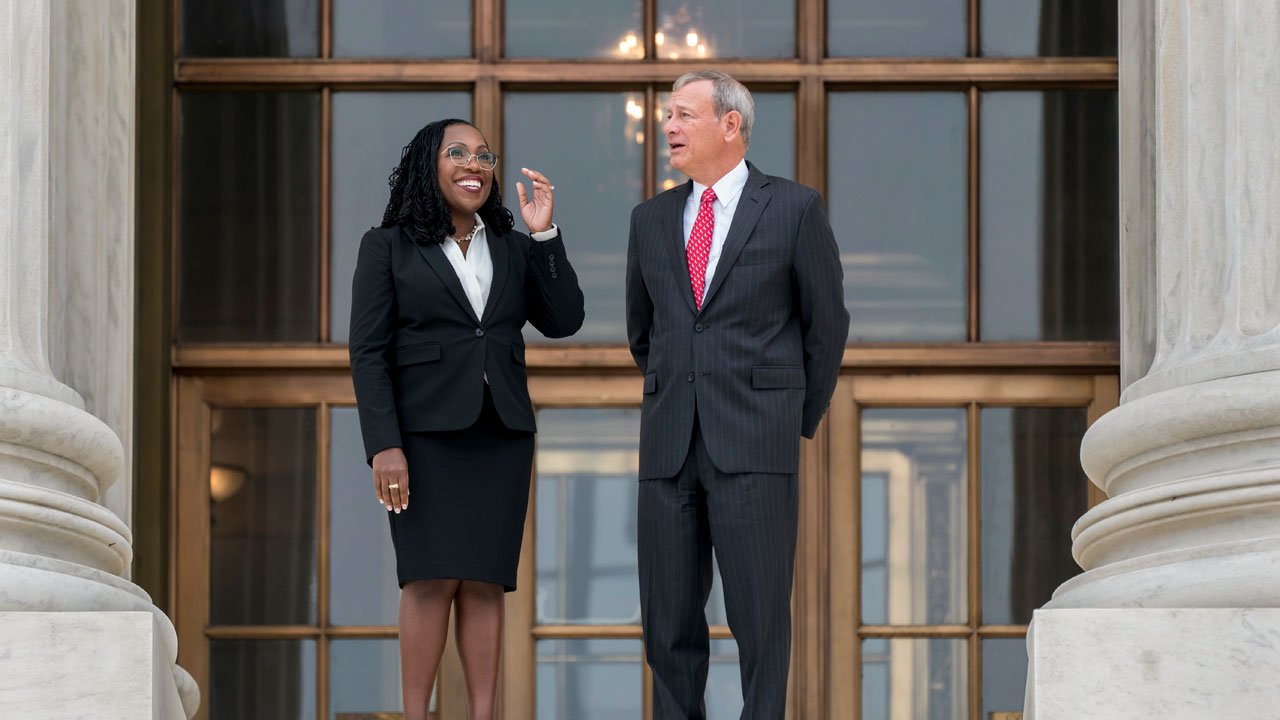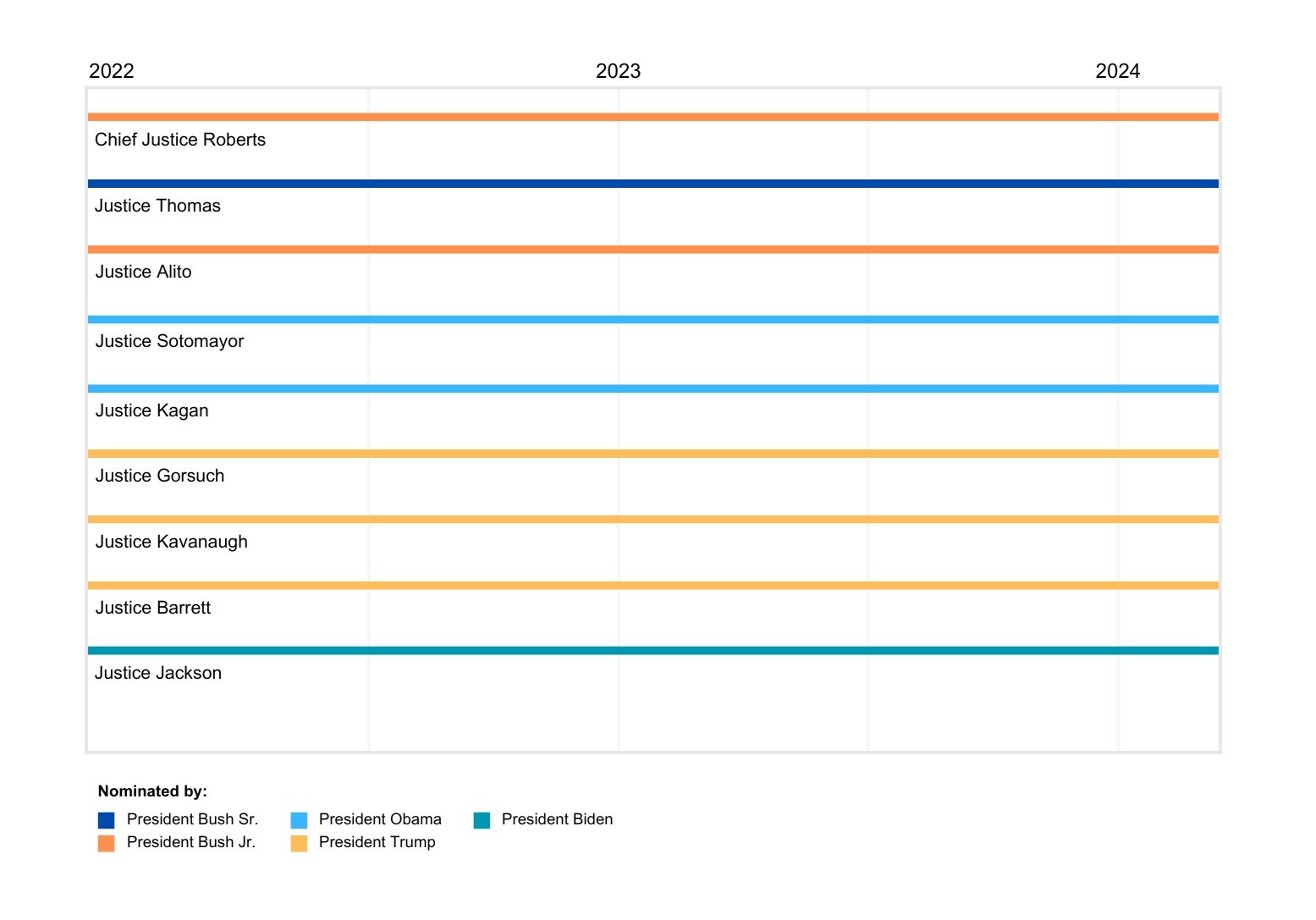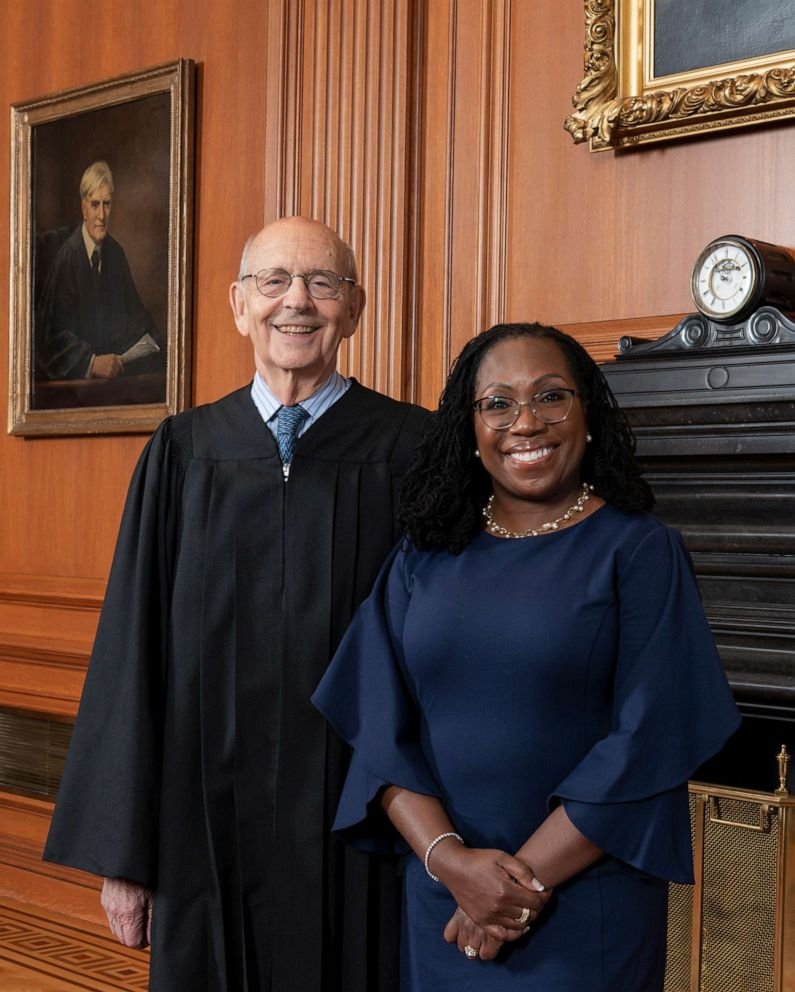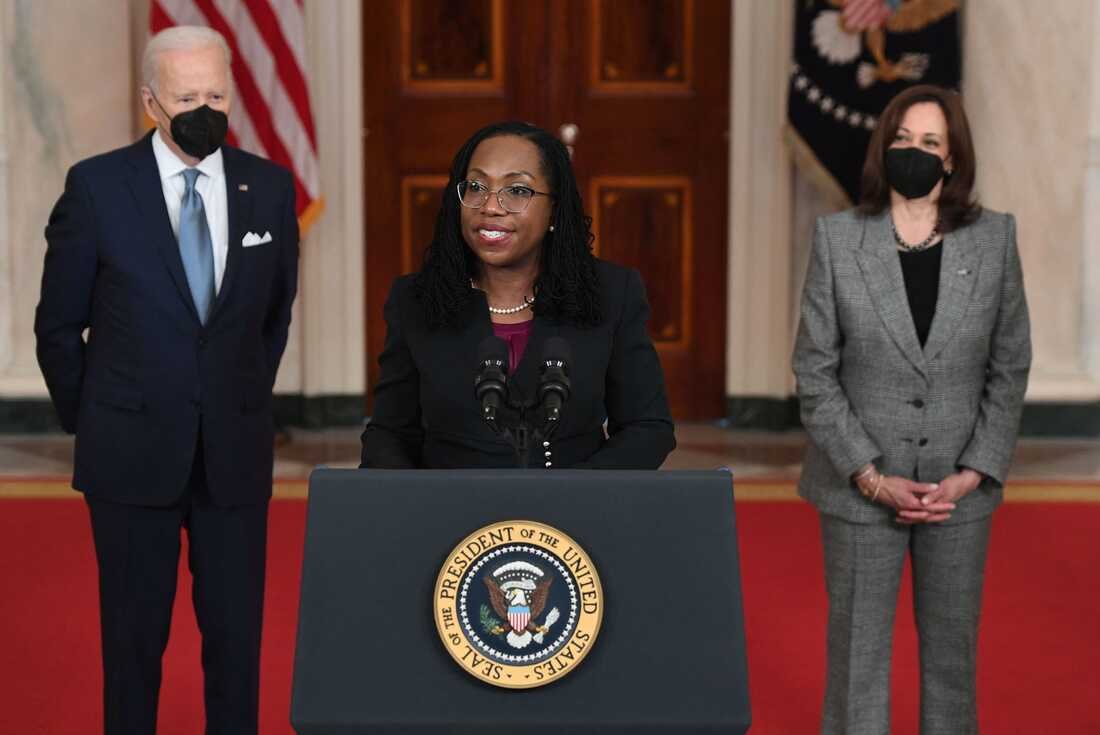KETANJI BROWN JACKSON
Associate Justice
Appointed by: Joe Biden
Sworn in: June 30, 2022
Preceded by: Stephen Breyer
2022 — Present
Ketanji Brown Jackson was born on September 14, 1970 in Washington, D.C. Both of Jackson’s parents attended historically black colleges and universities. After her father completed his undergraduate studies, he attended the University of Miami School of Law and worked as the chief attorney for the Miami-Dade County School Board, and her mother was principal at the New World School of Arts in Miami. Her uncle was the chief of the Miami Police Department.
Jackson grew up in Miami and attended Miami Palmetto Senior High School. She excelled as a champion debater, securing the national oratory title at the National Catholic Forensic League championships in New Orleans during her senior year. She has credited her experience in high school debate as the activity that best prepared her for future success in the legal field and in life. In 1988, she graduated from Palmetto as senior class president and expressed her aspiration to pursue a career in law and eventually obtain a judicial appointment in her high school yearbook.
Jackson pursued government studies at Harvard University after she graduated high school. In college, she was involved in drama classes, improv comedy, and participated in the Black Students Association. As a leader on campus, she spearheaded protests against the display of a Confederate flag and advocated for the inclusion of full-time professors in the Afro-American Studies Department. Jackson graduated from Harvard in 1992 with a Bachelor of Arts, magna cum laude. From 1992 to 1993, Jackson worked as a staff reporter and researcher for Time magazine. She then continued her education at Harvard Law School and served as supervising editor of the Harvard Law Review. Jackson graduated from Harvard Law School in 1996 with a Juris Doctor, cum laude.
Personal Life and Education
Justice Jackson speaking with Chief Justice Roberts | Credit: Associated Press
After law school, Jackson served as a law clerk to Judge Patti Saris of the United States District Court for the District of Massachusetts from 1996 to 1997, then to Judge Bruce Selya of the United States Court of Appeals for the First Circuit from 1997 to 1998. She spent a year in private practice at a law firm in Washington, D.C. before becoming a law clerk for Justice Stephen Breyer from 1999 to 2000. Jackson then worked in private practice until 2003 before working as an assistant special counsel to the United States Sentencing Commission from 2003 to 2005. From 2005 to 2007, Jackson worked as an assistant federal public defender in Washington, D.C., where she handled cases before the United States Court of Appeals for the District of Columbia Circuit. Jackson then worked as an appellate specialist in private practice until 2010.
In July 2009, President Obama nominated Jackson to become vice chair of the United States Sentencing Commission. In November of that year, the Senate Judiciary Committee favorable reported her nomination by voice vote. In September 2012, President Obama nominated Jackson for the United States District Court for the District of Columbia. In March 2021, President Biden nominated Jackson to replace Attorney General Merrick Garland aa United States Circuit Judge for the District of Columbia Circuit. In May, her nomination was reported out of committee by a vote of 13 to 9 and in June, her nomination was confirmed by a vote of 53 to 44.
Career
In 2016, President Obama considered Jackson as a nominee to fill the vacancy in the Supreme Court left by the late Justice Antonin Scalia. Jackson was one of five candidates interviewed for the position. Jackson’s name continued to draw speculation after President Biden pledged to appoint a black woman to the Supreme Court during the 2020 election.
On January 27, 2022, Justice Breyer wrote to President Biden expressing his intention to resign at the beginning of the Court’s summer recess upon the confirmation of his successor. A month later on February 25, President Biden his intention to nominate Jackson replace Justice Breyer as an Associate Justice on the Supreme Court. Her confirmation hearing before the Senate Judiciary Committee was held on March 21. The committee ultimately deadlocked with an 11–11 vote before the Senate discharged the committee from further consideration of her nomination by a vote of 53 to 47. Jackson was later confirmed by the Senate on April 7 by a vote of 53 to 47.
